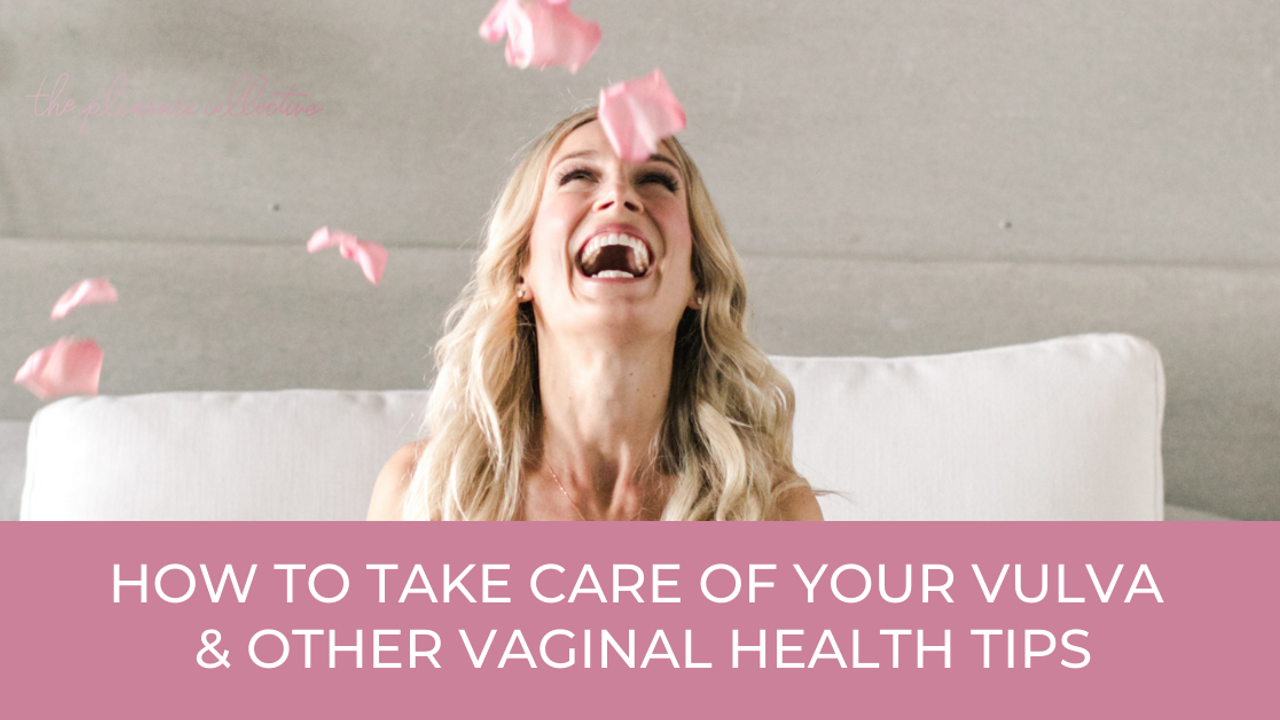How To Take Care Of Your Vulva & Other Vaginal Health Tips

As women, we haven’t been taught how to properly take care of our feminine health. We’ve been given misinformation, we’ve been taught to feel shame around it, and we’ve been bombarded with manipulative marketing messages that teach us that our bodies are wrong and need help.
There is a lot of shame and stigma in the healthcare world when it comes to women’s feminine, reproductive and sexual health. In fact, 80% of women report feeling uncomfortable discussing sexual health with their medical provider. We need to learn how to navigate the current healthcare system and break down the vaginal health myths and misunderstandings that we have been conditioned to believe.
Common Vaginal Health Questions
Vaginal health shouldn’t be a mystery. We should all be knowledgeable about our own bodies. The following are some of the most common vaginal health questions we receive:
- Does My Vagina Smell?
Let’s start off by saying your vagina isn’t supposed to smell like a floral arrangement, sea-breeze, or perfume. In fact when you use products that are highly fragranced or highly chemical, it will mess up your vaginal PH. When PH is disrupted, it can lead to chronic yeast infections or UTIs. Our vaginas are self-cleaning and designed to restore PH balance naturally, so just using water to cleanse or a very mild soap (externally of course) works great.
Of course, you should always pay attention to your body’s different smells throughout your cycle. If something is off, it may be an indicator of infection and to visit your healthcare provider.
- How Often Should I Be Getting Tested?
Getting regular STI and pap tests is something that should be de-stigmatized in society.
For women in their 20’s, you should be getting pap smears every three years with regular results. Make sure you stay on top of this schedule! This will continue into your 60’s.
If you’re sexually active with multiple partners, regular STI testing is a must. We like to think of STIs as a common cold - everyone gets them and you’ll need treatment for them. Even if you’re in a monogamous relationship you should still be getting tested occasionally because STIs can remain dormant/symptom-free for years. And don’t forget to follow up on your results!
Now if you’re hesitant to go to your regular doctor for testing, we encourage you to visit a local sexual health clinic as they are extra knowledgeable on the topic and are free from judgment.
- Is My Vulva Normal?
Short answer: yes. Long answer: your vulva is beautiful exactly the way it is - the colour, shape, texture, hair distribution, symmetry, etc. There’s been a trend in society where we’ve been shown images of vulvas that are “perfect”, leading us to believe that if ours doesn’t look like that, it’s abnormal. Vulvas come in all sorts of different shapes, sizes, and colours. You need to learn to fall in love with your vulva and appreciate the pleasure it brings to your life.
Taking Care Of Your Vulva
We’re here to help guide you on how to best take care of your vulva and your vaginal health.
- Gut Health - It’s important for your entire body (yes, including your vulva!). The yeast and bacteria that grows in your gut is shared with your vagina. A few ways to ensure you keep a healthy gut is to reduce sugar and inflammatory foods (dairy & gluten), and practice good oral hygiene.
- Pelvic Health - When you have issues with your pelvic floor, it could lead to a whole other range of other issues. Movement is very important for your pelvic health, especially if you have the type of job where you sit all day.
- Balance Your Hormones - When you have a hormone imbalance, it affects everything in your body. From PMS to mood swings, anxiety, acne and libido. We suggest getting your hormones tested and balanced.
- Get Tested - The only way to know you’re healthy and clear of infections and in optimal health is to get tested (STI, hormone, blood, etc.). If you feel like something is off but you’re being told your tests are fine, you’re likely not speaking to the right healthcare provider.
The Next Steps
Starting with your sexual health education is extremely important because next comes learning to love yourself and your life.
I offer a foundational sex re-education program that's online and self-paced. A lifetime of being shamed by family, friends, religion, culture, partners and the media has taught you to run from your sexuality and desires. The Pleasure Principles is the only program that understands you and what you need to have the connected relationships and mind-blowing sex you desire. Click here to learn more.
For more on this topic, listen to episode #48 of The Pleasure Principles Podcast on Apple or Spotify.


